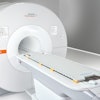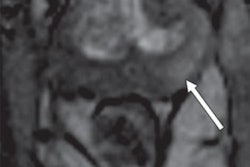
Prostate cancer screening that combines prostate-specific antigen (PSA) testing followed by an MRI is more cost-effective than the traditional pathway of PSA to standard biopsy, according to a study published November 10 in JAMA Oncology.
The findings also suggest that a strategy of PSA testing, MRI, and then biopsy if needed could reduce unnecessary biopsies, wrote a team led by Shuang Hao of the Karolinska Institute in Stockholm, Sweden.
"Compared with PSA screening, [our study found that] MRI-based screening reduced the number of both lifetime biopsies and overdiagnosis by approximately 50%," the group reported.
Traditionally, prostate cancer screening has been conducted with a PSA test followed by an ultrasound-guided biopsy, the authors noted. But the idea of using imaging such as MRI to screen for prostate cancer and proceeding with biopsy only if indicated could be both easier on patients and more cost-effective.
"In recent years, there has been growing evidence in favor of MRI combined with [MRI or CT] targeted biopsies to complement PSA testing and improve prostate cancer diagnostics," the group noted.
The researchers assessed the cost effectiveness of three prostate cancer screening strategies using data from the STHLM3-MRI screening-by-invitation study -- which explored the benefits of using MRI-targeted biopsy and standard biopsy compared to standard biopsy alone -- to create a microsimulation model that evaluated both no-screening and screening strategies among 1,532 simulated adult men in Sweden.
The three interventions included no screening; PSA screening plus standard biopsy every four years; and MRI-based screening plus both targeted and standard biopsies. The team then estimated the number of tests, cancer incidence, deaths, costs, quality-adjusted life years (QALYs), and incremental cost-effectiveness ratios (ICERs).
Hao's group found that the strategy of PSA testing followed by MRI -- and if needed, standard and targeted biopsy -- had a lower cost and was more cost-effective per QALY than the traditional PSA plus standard biopsy strategy.
| Cost and QALY comparison between three MRI prostate cancer screening strategies | |||
| Strategy | Costs (in millions) per 100,000 men | Quality-adjusted life years (QALY) | Incremental cost-effectiveness ratio (ICER) per QALY |
| No screening | $212 | 1,463,945 | N/A |
| PSA and MRI with both targeted and standard biopsies | $252.3 | 1,464,696 | 53,736 |
| PSA and standard biopsy | $271.2 | 1,464,801 | 69,254 |
The study findings offer what seems to be a cost-effective way to screen for prostate cancer, according to Hao and colleagues.
"These results suggest that screening with PSA and MRI with subsequent combined biopsies for prostate cancer has a high probability to be more cost-effective compared with PSA screening using standard biopsy," they concluded.





















